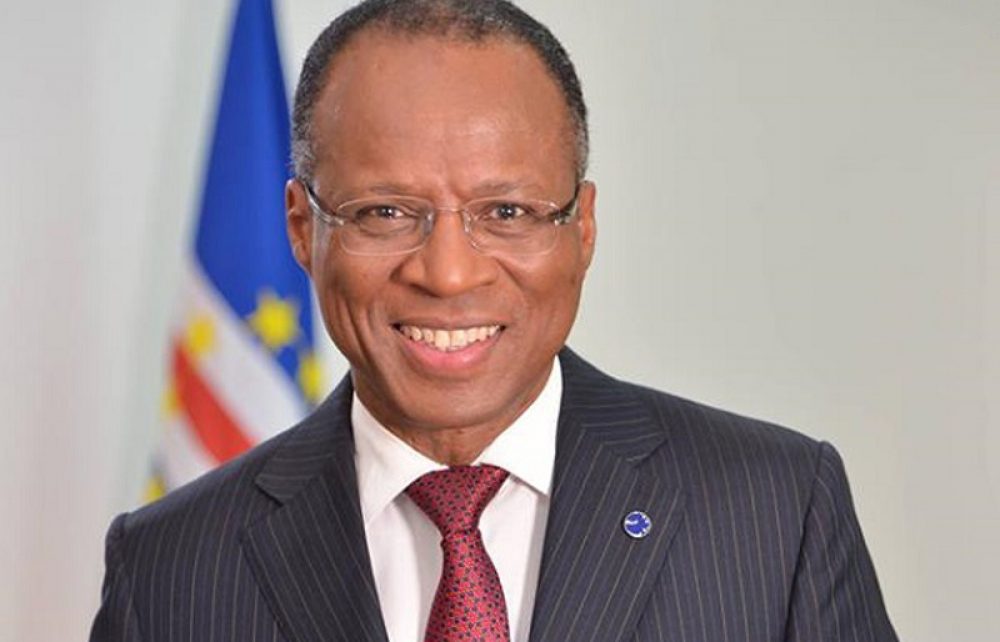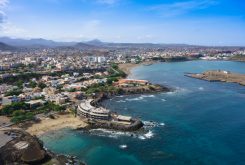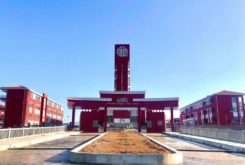The Covid-19 pandemic has led airlines to cancel flights all over the world, while Governments have shut down borders to prevent importing cases.
With developed economies expecting recession and steep increases in unemployment, Tourism in island nations is set to be particularly hit, leaving countries like Cape Verde in a delicate situation. Already, the prime minister of Cabo Verde has confirmed the country will face a hard recession in 2020.
Ulisses Correia e Silva, chief of Cabo Verde’s liberal Government, confirmed over the weekend, quoted by DW Africa, that, instead of the previously expected 5 per cent GDP growth in 2020, the country is set for a steep recession, due to the current collapse of Tourism, the country´s main industry.
“The macroeconomic scenario prepared by the Ministry of Finance team and validated by the IMF [International Monetary Fund] mission team, points to a strong economic recession in 2020 in Cabo Verde, similar to what is happening worldwide”, said Correia e Silva.
After the Government closed the country´s borders, the national air carrier, Cabo Verde Airlines, announced on March 17 that it was suspending all flights for at least 30 days. The measure will leave hotels and restaurants empty of foreign tourists during the Easter period, but should also impact summer sales. Because the countries of origin of the majority of Cabo Verde tourists – Portugal, Italy, United Kingdom – are also expecting a severe impact of Covid-19 in their economic activity and unemployment, the impact of the global recession should be felt throughout the year.
For the Government, the impact on tax revenues will be strong due to the drop in activity in the tourism industry”, according to Correia e Silva. This week, the country´s authorities are set to discuss an emergency relief package for companies and families, which, the prime minister adds, “will impact public finances and social security, but are essential to avoid an uncontrollable and even greater spiral of the crisis”.
“For these reasons, a budget review will be necessary. We plan to present it to parliament by June”, says Correia e Silva. Cabo Verde, he adds, needs the support of all partners, “the IMF included, just as the countries of the European Union need the support of Community funds and the ECB [European Central Bank]. We are facing the biggest global health and economic crisis in recent times ”.
So far, Cabo Verde has 3 cases of Covid-19 confirmed, all foreign tourists and only on the island of Boa Vista, which is quarantined.
Cabo Verde receives 750 thousand tourists annually, which are by far the main source for economic output, foreign currency and Government taxes.
In an update on largest tourist destinations in the world published last week, rating agency Standard & Poor’s calculates Cabo Verde GDP may decline 2.73 per cent this year if tourism slows down 11%; if the flow of tourists falls 27% the drop could reach 6.71 per cent.
For this year, the African Development Bank anticipated, before the Covid-19 crisis, a growth of 5% for Cabo Verde, in line with the estimate of the International Monetary Fund (IMF), and within the range indicated by the Government (of 4.8 % to 5.8% of GDP).
S&P confirms that the smallest island economies appear to be the most exposed to a slowdown in tourism, as is the case in Cabo Verde, one of the 16 countries with revenues exceeding 25% from international tourists.
According to the UN´s Economic Commission for Africa (ECA), as the virus continues to spread worldwide, remittances and tourism are also being affected, resulting in a decline in FDI flows, capital flight, domestic financial market tightening, and a slow-down in investments – hence job losses.
In its evaluation of the current impact of the pandemic in Africa´s economies, UNECA estimates the country that will be the most hit in Africa will be Sao Tome e Principe, whose dependency on tourism income should mean a 34% crash in its economic output.




